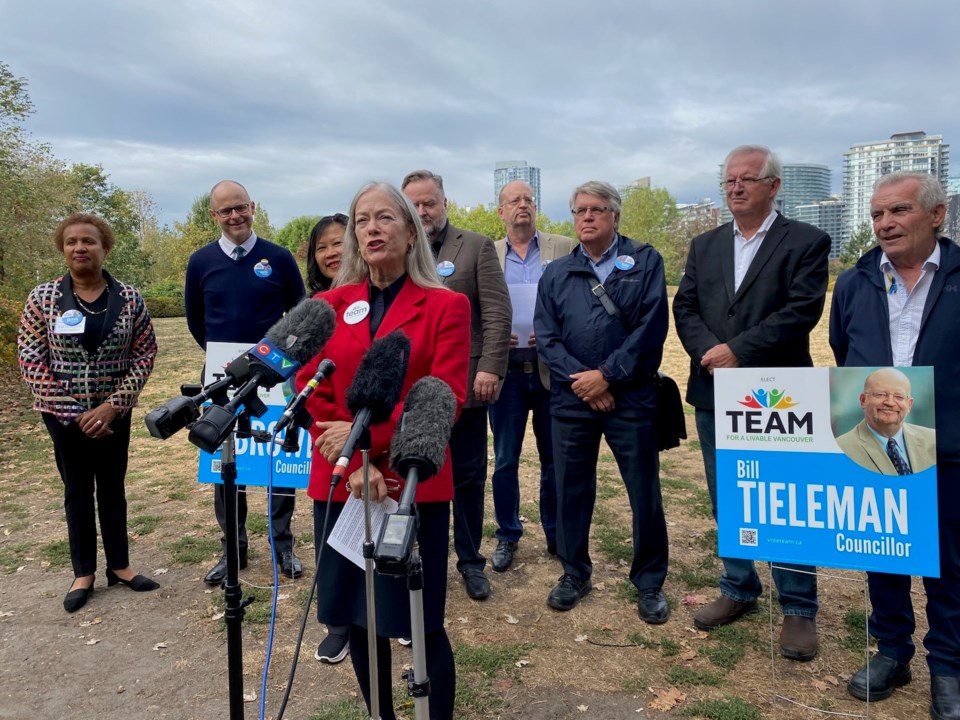A $500-million municipal loan, intended to be matched by senior governments, is being proposed by Â鶹´«Ã½Ó³»mayoral candidate Colleen Hardwick to build 6,000 new co-op units managed by a new city-run organization.
The non-market co-op housing plan mirrors decades-old federal co-op projects that have since been abandoned for free market solutions; it's also similar to a plan recently proposed by think-tank Canadian Centre for Policy Alternatives.
In essence, Hardwick says a referendum will be held to have the city borrow $500 million for roughly 2,000 new co-op units, with the hopes of tripling the plan with likewise loans from the provincial and federal governments.
Over a 35-year term the loans will be paid back by co-op tenants, with an unstated "added return" to Â鶹´«Ã½Ó³»taxpayers, as required by the terms of the Â鶹´«Ã½Ó³»Property Endowment Fund. Rental costs would theoretically come in under free market values by way of using city land and low government interest rates.
Hardwick says the plan would be the biggest investment in “100% affordable” housing the city has ever seen and aims to attract and retain a diverse range of income-earning families and professionals in the city.
However, questions remain, including what the share of multi-bedroom units would be and exactly where the city-run co-ops would be located.
When asked if $250,000 per unit is sufficient, Hardwick said the plan is a rough estimate and her TEAM For A Livable Â鶹´«Ã½Ó³»slate would iron out details in due time.
The units, to house roughly 12,000 people, would be built throughout the city, on city-owned properties, including on the west side — known for its single-detached homes and plentiful parks.
The city councillor announced the largely unspecified plan Wednesday, with vocal support from Patrick Condon, founding chair of the UBC Urban Design Program.
Architect Brian Palmquist also backed the plan, stating market housing has not addressed the supply Â鶹´«Ã½Ó³»needs.
Hardwick has stated she will axe the “Broadway Plan” should she be elected (and have the necessary majority support to do so). The plan sees a major densification of market housing of the corridor, which will soon have a subway line completed underneath it. Hardwick said she is critical of broad assertions Â鶹´«Ã½Ó³»needs more re-zoned land for market housing.
In March, the claiming such an arrangement can reduce costs by about 43 per cent (including eliminating parking requirements and using wood). Instead of developers reaping at least 15 per cent profits, the non-profit (or in this case the city-run co-op manager) would cost about five per cent to manage, noted the report by economist Marc Lee.
Between 1973 and 1985, 39,000 federally funded co-ops were built in Canada; however, these projects were halted in the 1990s, notes the (CHF).
The federation now works in B.C. with the in Â鶹´«Ã½Ó³»to build co-ops via the non-profit sector and in conjunction with the City of Vancouver.




